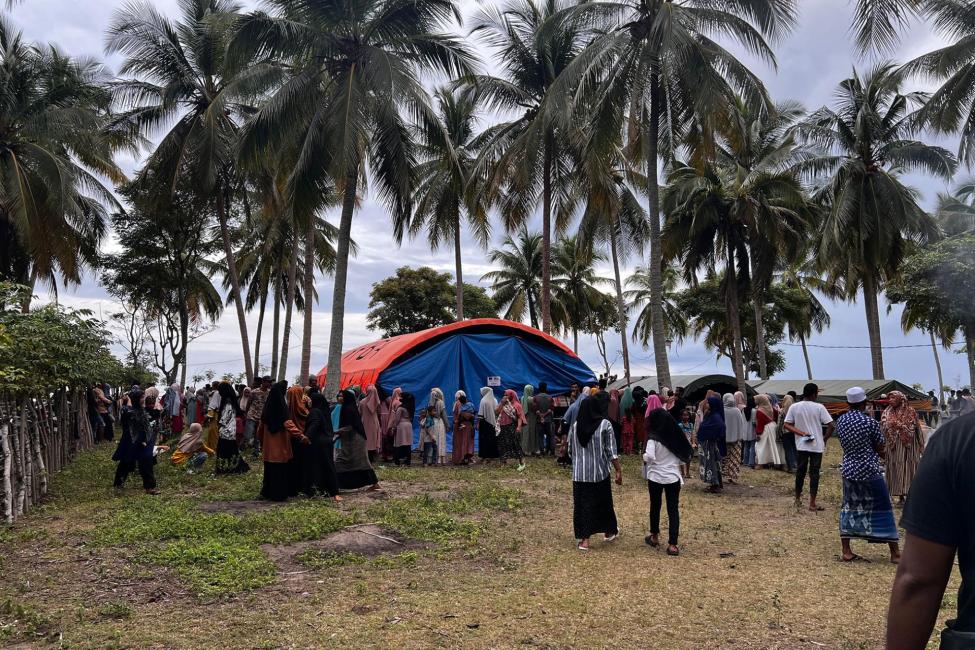-
Who we are
WHO WE AREThe International Organization for Migration (IOM) is part of the United Nations System as the leading inter-governmental organization promoting since 1951 humane and orderly migration for the benefit of all, with 175 member states and a presence in over 100 countries. IOM joined the United Nations system in September 2016.
About
About
IOM Global
IOM Global
-
Our Work
Our WorkAs the leading inter-governmental organization promoting humane and orderly migration, IOM plays a key role to support the achievement of the 2030 Agenda through different areas of intervention that connect both humanitarian assistance and sustainable development.
Cross-cutting (Global)
Cross-cutting (Global)
- Data and Resources
- Take Action
- 2030 Agenda
UN Humanitarian Leaders Urge Security Council to Preserve Cross-border Aid Lifeline to North-west Syria
New York/Geneva/Rome, 2 January 2023 – United Nations Security Council resolution 2642 – which allows for life-saving humanitarian aid to be delivered to north-west Syria from across the Turkish border – is set to expire in eight days. If the Council fails to extend it, the consequences will be catastrophic for 4.1 million people in non-Government-controlled areas. Most of them are women and children who need assistance just to survive at the peak of winter and amidst a serious cholera outbreak.
Without UN cross-border operations, millions of people, especially those displaced for years and multiple times, will not have access to food and shelter; to help in coping with harsh winter conditions; to the surveillance, treatment and testing capacities needed to contain cholera; to safe water; and to protection from gender-based violence.
Any failure by the Council to extend the resolution would also mean that the UN Monitoring Mechanism (UNMM) would cease to function, which would bring an end to the UN’s verification of the humanitarian nature of consignments at the border.
Our position remains consistent and clear: Humanitarian assistance and protection services must always be allowed to reach those who need it through the safest and most direct and efficient route.
In 2022, together with our partners, we delivered aid from across the Turkish border into Syria, reaching an average of 2.7 million people every month. This work included early recovery and livelihood support to strengthen the resilience of communities across Syria.
We were also able to bolster assistance within Syria from Government-controlled areas across frontlines into the country’s north-west, delivering food, health, education and other supplies for thousands of people in need. We are determined to maintain and expand these deliveries, and we call on all stakeholders for unhindered, sustained and predictable humanitarian access to north-west Syria from Government-controlled areas.
Yet these crossline deliveries, while effective, cannot match the scale and scope of cross-border operations, which is and will continue to be indispensable.
Unlike earlier resolutions which extended the cross-border operations for 12 months, the last action taken by the Council only granted a six-month authorization. This led to additional logistical and operational challenges, increased operational costs, and curbed the capacity of humanitarian partners to help those in need.
The millions of people who depend on the cross-border lifeline for survival need this resolution to be renewed without delay.
Signatories
-
Mr. Martin Griffiths, Emergency Relief Coordinator and Under-Secretary-General for Humanitarian Affairs (OCHA)
-
Mr. António Vitorino, Director General, International Organization for Migration (IOM)
-
Mr. Filippo Grandi, United Nations High Commissioner for Refugees (UNHCR)
-
Ms. Catherine Russell, Executive Director, United Nations Children's Fund (UNICEF)
-
Mr. David Beasley, Executive Director, World Food Programme (WFP)
-
Dr. Tedros Adhanom Ghebreyesus, Director-General, World Health Organization (WHO)

